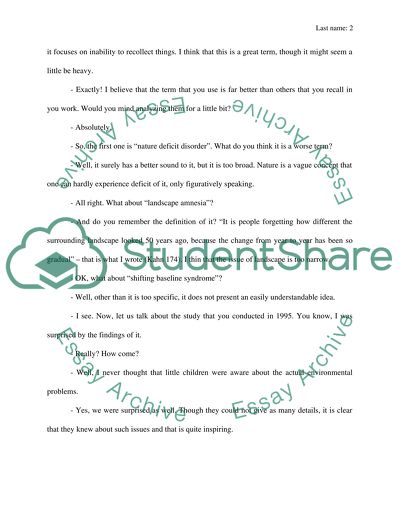Cite this document
(“An interview about the phenomenon of environmental generational Essay”, n.d.)
Retrieved de https://studentshare.org/sociology/1696577-an-interview-about-the-phenomenon-of-environmental-generational-amnesia
Retrieved de https://studentshare.org/sociology/1696577-an-interview-about-the-phenomenon-of-environmental-generational-amnesia
(An Interview about the Phenomenon of Environmental Generational Essay)
https://studentshare.org/sociology/1696577-an-interview-about-the-phenomenon-of-environmental-generational-amnesia.
https://studentshare.org/sociology/1696577-an-interview-about-the-phenomenon-of-environmental-generational-amnesia.
“An Interview about the Phenomenon of Environmental Generational Essay”, n.d. https://studentshare.org/sociology/1696577-an-interview-about-the-phenomenon-of-environmental-generational-amnesia.


